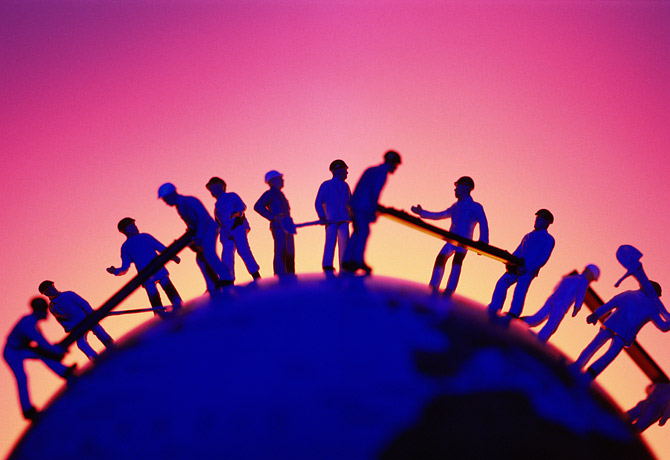
Whoever raises his right hand to take the oath of office as President next January will pledge to uphold the Constitution — and will have already promised to make national service a priority for his Administration. John McCain and Barack Obama have served the nation in different ways, but each man has asserted that national service not only can help solve the country's problems but also can and should be a unifying force for America in the 21st century.
McCain's commitment to service is part of a patriotic legacy. The son and grandson of Navy admirals, McCain came close to making the ultimate sacrifice for his country. He has talked again and again about serving a "cause greater than yourself." When Obama graduated from Columbia University, he could have gone on to a prestigious and lucrative corporate career. Instead, he chose to work as a community organizer on the streets of Chicago. Service, he says, "will be a cause of my presidency." Their paths reveal much about the two men. McCain's choice was traditional and honored; Obama's was in some ways unorthodox. And while both men are united in their embrace of national service, their policies suggest different views of the role of government.
The nominees may be the most prominent spokesmen for service, but they are surfing a national wave that is growing rapidly. There were a million more volunteers in 2007 than in 2002, when the Census Bureau started keeping track, and the National Conference on Citizenship's 2008 Civic Report Card to be released this month shows that Americans overwhelmingly support policy changes to increase service incentives and opportunities.
The movement does not emanate from Washington (though Congress will soon consider the bipartisan Kennedy-Hatch bill on national service). Corporations are beginning to offer employees paid leave for service. Universities are integrating a service year into their students' academic experience. Citizen entrepreneurs are using technology to improve energy consumption, health care and educational services.
The service movement is uniting the two largest generations in American history, the baby boomers and the millennials. They are the demographic bookends of America, and together they comprise more than half the U.S. population. Both have a strong commitment to civic engagement. Millennials are volunteering in record numbers, while their parents will double the ranks of older volunteers by 2036. Social scientists have talked about a 9/11 generation, and a new study by aarp found that boomers ranked "making a difference by helping others" as one of their most important goals. Both of these generations want to increase their service, and both feel they have not been asked to do enough.
Last year I wrote a cover story called "The Case for National Service." This year, in our second annual community-service issue, we feel that case has been made — so what we offer you are 21 big and small ideas on how you can serve your community, your family, your country. I still believe a service year for young people should become a national rite of passage, but the service movement has already become an extraordinary laboratory of new ideas.
National service is part of our DNA. From the signers of the Declaration pledging their lives and sacred honor, to Ben Franklin's community fire-insurance company, to all the volunteer associations Alexis de Tocqueville saw when he visited America, service is a key part of the story we tell ourselves about this country. The ideas for national service we write about in this issue are as old as the Liberty Bell and as modern as long-distance digital tutoring. And they are part of a new American story that we are inventing every day.